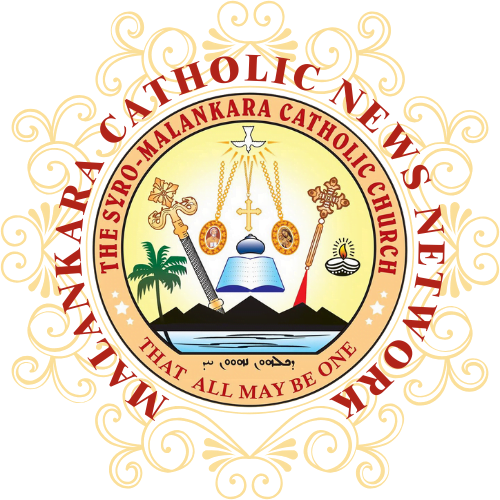“Through Christ, God is the Principal Subject of Evangelization in the World”
Here is the translation of the Holy Father’s homily given , at the Opening Mass of the Year of Faith and on the occasion of the 50th anniversary of the Second Vatican Council. The mass was celebrated in St. Peter’s Square.
* * *
Dear Brother Bishops,
Dear brothers and sisters!
Today, fifty years from the opening of the Second Vatican Ecumenical Council, we begin with great joy the Year of Faith. I am delighted to greet all of you, particularly His Holiness Bartholomew I, Patriarch of Constantinople, and His Grace Rowan Williams, Archbishop of Canterbury. A special greeting goes to the Patriarchs and Major Archbishops of the Eastern Catholic Churches, and to the Presidents of the Bishops’ Conferences. In order to evoke the Council, which some present had the grace to experience for themselves – and I greet them with particular affection – this celebration has been enriched by several special signs: the opening procession, intended to recall the memorable one of the Council Fathers when they entered this Basilica; the enthronement of a copy of the Book of the Gospels used at the Council; the consignment of the seven final Messages of the Council, and of the Catechism of the Catholic Church, which I will do before the final blessing. These signs help us not only to remember, they also offer us the possibility of going beyond commemorating. They invite us to enter more deeply into the spiritual movement which characterized Vatican II, to make it ours and to develop it according to its true meaning. And its true meaning was and remains faith in Christ, the apostolic faith, animated by the inner desire to communicate Christ to individuals and all people, in the Church’s pilgrimage along the pathways of history.
The Year of Faith which we launch today is linked harmoniously with the Church’s whole path over the last fifty years: from the Council, through the Magisterium of the Servant of God Paul VI, who proclaimed a Year of Faith in 1967, up to the Great Jubilee of the year 2000, with which Blessed John Paul II re-proposed to all humanity Jesus Christ as the one Savior, yesterday, today and forever. Between these two Popes, Paul VI and John Paul II, there was a deep and profound convergence, precisely upon Christ as the center of the cosmos and of history, and upon the apostolic eagerness to announce him to the world. Jesus is the center of the Christian faith. The Christian believes in God whose face was revealed by Jesus Christ. He is the fulfillment of the Scriptures and their definitive interpreter. Jesus Christ is not only the object of the faith but, as it says in the Letter to the Hebrews, he is “the pioneer and the perfecter of our faith” (12:2).
Today’s Gospel tells us that Jesus Christ, consecrated by the Father in the Holy Spirit, is the true and perennial subject of evangelization. “The Spirit of the Lord is upon me, because he has anointed me to preach the good news to the poor” (Lk 4:18). This mission of Christ, this movement of his continues in space and time, over centuries and continents. It is a movement which starts with the Father and, in the power of the Spirit, goes forth to bring the good news to the poor, in both a material and a spiritual sense. The Church is the first and necessary instrument of this work of Christ because it is united to him as a body to its head. “As the Father has sent me, even so I send you” (Jn 20:21), says the Risen One to his disciples, and breathing upon them, adds, “Receive the Holy Spirit” (v.22). Through Christ, God is the principal subject of evangelization in the world; but Christ himself wished to pass on his own mission to the Church; he did so, and continues to do so, until the end of time pouring out his Spirit upon the disciples, the same Spirit who came upon him and remained in him during all his earthly life, giving him the strength “to proclaim release to the captives and recovering of sight to the blind, to set at liberty those who are oppressed” and “to proclaim the acceptable year of the Lord” (Lk 4:18-19).
The Second Vatican Council did not wish to deal with the theme of faith in one specific document. It was, however, animated by a desire, as it were, to immerse itself anew in the Christian mystery so as to re-propose it fruitfully to contemporary man. The Servant of God Paul VI, two years after the end of the Council session, expressed it in this way: “Even if the Council does not deal expressly with the faith, it talks about it on every page, it recognizes its vital and supernatural character, it assumes it to be whole and strong, and it builds upon its teachings. We need only recall some of the Council’s statements in order to realize the essential importance that the Council, consistent with the doctrinal tradition of the Church, attributes to the faith, the true faith, which has Christ for its source and the Church’s Magisterium for its channel” (General Audience, 8 March 1967); thus said Paul VI.
We now turn to the one who convoked the Second Vatican Council and inaugurated it: Blessed John XXIII. In his opening speech, he presented the principal purpose of the Council in this way: “What above all concerns the Ecumenical Council is this: that the sacred deposit of Christian doctrine be safeguarded and taught more effectively […] Therefore, the principal purpose of this Council is not the discussion of this or that doctrinal theme… a Council is not required for that… [but] this certain and immutable doctrine, which is to be faithfully respected, needs to be explored and presented in a way which responds to the needs of our time” (AAS 54 [1962], 790,791-792).
In the light of these words, we can understand what I myself felt at the time: during the Council there was an emotional tension as we faced the common task of making the truth and beauty of the faith shine out in our time, without sacrificing it to the demands of the present or leaving it tied to the past: the eternal presence of God resounds in the faith, transcending time, yet it can only be welcomed by us in our own unrepeatable today. Therefore I believe that the most important thing, especially on such a significant occasion as this, is to revive in the whole Church that positive tension, that yearning to announce Christ again to contemporary man. But, so that this interior thrust towards the new evangelization neither remain just an idea nor be lost in confusion, it needs to be built on a concrete and precise basis, and this basis is the documents of the Second Vatican Council, the place where it found expression. This is why I have often insisted on the need to return, as it were, to the “letter” of the Council – that is to its texts – also to draw from them its authentic spirit, and why I have repeated that the true legacy of Vatican II is to be found in them. Reference to the documents saves us from extremes of anachronistic nostalgia and running too far ahead, and allows what is new to be welcomed in a context of continuity. The Council did not formulate anything new in matters of faith, nor did it wish to replace what was ancient. Rather, it concerned itself with seeing that the same faith might continue to be lived in the present day, that it might remain a living faith in a world of change. If we place ourselves in harmony with the authentic approach which Blessed John XXIII wished to give to Vatican II, we will be able to realize it during this Year of Faith, following the same path of the Church as she continuously endeavors to deepen the deposit of faith entrusted to her by Christ. The Council Fathers wished to present the faith in a meaningful way; and if they opened themselves trustingly to dialogue with the modern world it is because they were certain of their faith, of the solid rock on which they stood. In the years following, however, many embraced uncritically the dominant mentality, placing in doubt the very foundations of the deposit of faith, which they sadly no longer felt able to accept as truths.
If today the Church proposes a new Year of Faith and a new evangelization, it is not to honor an anniversary, but because there is more need of it, even more than there was fifty years ago! And the reply to be given to this need is the one desired by the Popes, by the Council Fathers and contained in its documents. Even the initiative to create a Pontifical Council for the promotion of the new evangelization, which I thank for its special effort for the Year of Faith, is to be understood in this context. Recent decades have seen the advance of a spiritual “desertification”. In the Council’s time it was already possible from a few tragic pages of history to know what a life or a world without God looked like, but now we see it every day around us. This void has spread. But it is in starting from the experience of this desert, from this void, that we can again discover the joy of believing, its vital importance for us, men and women. In the desert we rediscover the value of what is essential for living; thus in today’s world there are innumerable signs, often expressed implicitly or negatively, of the thirst for God, for the ultimate meaning of life. And in the desert people of faith are needed who, with their own lives, point out the way to the Promised Land and keep hope alive. Living faith opens the heart to the grace of God which frees us from pessimism. Today, more than ever, evangelizing means witnessing to the new life, transformed by God, and thus showing the path. The first reading spoke to us of the wisdom of the wayfarer (cf. Sir 34:9-13): the journey is a metaphor for life, and the wise wayfarer is one who has learned the art of living, and can share it with his brethren – as happens to pilgrims along the Way of Saint James or similar routes which, not by chance, have again become popular in recent years. How come so many people today feel the need to make these journeys? Is it not because they find there, or at least intuit, the meaning of our existence in the world? This, then, is how we can picture the Year of Faith: a pilgrimage in the deserts of today’s world, taking with us only what is necessary: neither staff, nor bag, nor bread, nor money, nor two tunics – as the Lord said to those he was sending out on mission (cf. Lk 9:3), but the Gospel and the faith of the Church, of which the Council documents are a luminous expression, as is the Catechism of the Catholic Church, published twenty years ago.
Venerable and dear Brothers, 11 October 1962 was the Feast of Mary Most Holy, Mother of God. Let us entrust to her the Year of Faith, as I did last week when I went on pilgrimage to Loreto. May the Virgin Mary always shine out as a star along the way of the new evangelization. May she help us to put into practice the Apostle Paul’s exhortation, “Let the word of Christ dwell in you richly, teach and admonish one another in all wisdom […] And whatever you do, in word or deed, do everything in the name of the Lord Jesus, giving thanks to God the Father through him” (Col 3:16-17). Amen.











